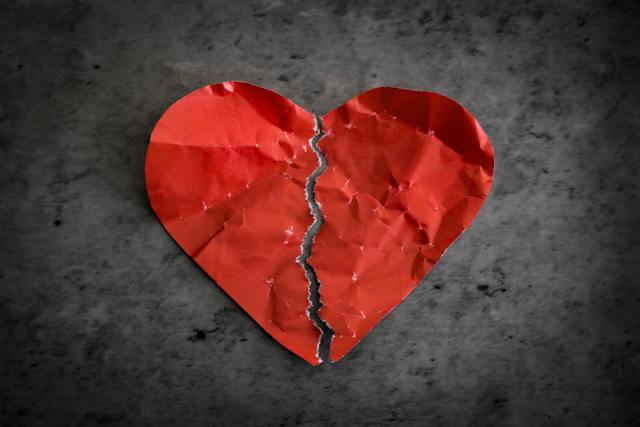[ad_1]
Every couple in love is different, but if you look closely, they all have something similar. That is why psychologists, and not only them, conditionally distinguish categories and types of couples. What does this give the common man? First, clarity and understanding of what is happening in the relationship. Secondly, the ability to see prospects, adapt to the scenario and build the most happy relationships due to this. What are the couples, how they differ, as well as advice from psychologists for each type – further.
The content of the article
Types of relationships in a couple
There are various types of relationships in a couple, the knowledge of which helps to build communication more effectively. Partners who understand and are aware of what is happening in their relationship are able to properly deal with conflicts and effectively find a common language. Psychologists conventionally divide relationships in a couple into such types.
dramatic
Couples that are made up of two overly emotional people are doomed to periodically go through dramatic periods. If at the same time people are focused on each other, then dramatic periods do not lead to negative consequences, but, on the contrary, help to become closer and better understand each other. A little drama is the perfect cure for boredom and routine in a relationship. The main features of dramatic couples:
- frequent and violent conflicts;
- no less bright periods of reconciliation;
- high degree of passion;
- claims to each other;
- inconsistency of expectations from relationships among partners;
- low ability to communicate constructively.
In any case, the element of drama is present in every way. Just for couples in this category, drama is a natural, frequent occurrence, without which they cannot imagine their relationship.
Free
The relationships of young people built on the principle of freedom are far from always long-term. But in some cases, partners who build their relationship on the principle of freedom and mutual respect create families and live happily ever after. The main signs of free pairs:
- respect in relationships
- acceptance and tolerance;
- ability to communicate effectively;
- lack of commitment.
In such relationships, partners often spend time together if it does not stress them out. They love parties or quiet tete-a-tete entertainment. The only drawback is the lack of stability and true intimacy, in which partners can absolutely trust each other, rely on mutual assistance in case of difficult situations.
Toxic (dependent)
Often, relationships built on the principle of toxic addiction last much longer. This happens because partners in dependent relationships do not always realize this and are aware of their position. In fact, such relations are not aimed at mutual development.
Psychologists characterize them as destructive, that is, destructive. But in practice, you can find toxic components in each connection. If you understand the rules of the game, you can remain happy, even in a dependent relationship. Distinctive characteristics of toxic relationships:
- emotional “swing” (as in the dramatic type);
- mutual claims;
- clear distribution of roles;
- excessive attachment (dependency component).
In a toxic relationship, one partner acts as a “donor” and the second as a “recipient”, but all this is on an energy level, and not literally. A couple in which one gives and the other always receives can live happily ever after, but on one condition. The donor must find alternative sources of energy to compensate for the lost emotional energy.
Harmonious
Harmonious can be called a couple formed from two contrasting personalities, but having common goals, plans, values and outlook on life. This is a rarer type of relationship than the options described above. Harmony in relationships is the merit of two partners in combination with the power of attraction of opposites. They are distinguished by the following features:
- partners differ significantly in characters, tastes, preferences;
- they are not conservative;
- acceptance and mutual respect reign in relationships;
- the emotional sphere is balanced with the rational one.
In harmonious relationships, lovers use those areas in which they differ significantly, day for conflict, but for balance.
Balanced
Balance is the optimal ratio, the balance between negative and positive qualities. A balanced relationship can be considered as stable as possible. As a rule, most partners who have been together for a long time find this point of balance and try to stay in it. The ability to balance the union is a quality that is developed in people with the acquisition of experience. Here’s how a balanced relationship is different:
- balance of emotions and rationalism;
- the ability of partners to communicate constructively;
- there are conflicts, but they are successfully resolved;
- partners have affection, but value each other’s boundaries.
In fact, a perfectly balanced relationship does not exist. Balan is a conditional concept. There are just couples who strive for this balance and can hold on most of the time without much hesitation. Balanced relationships are far from extreme, due to which partners manage to maintain emotional balance. The disadvantage of this type of connection is that the balance is not for everyone. Overly expressive and emotional people in such relationships can be simply bored.
Contrasting
Many have heard that opposites attract. In fact, not everything is so clear. Excessively different partners can remain happy as long as the relationship has enough “fuel”, that is, exactly until the period of time when love and passion end. But still, pairs consisting of partners-opposites exist. They are distinguished by such features:
- independence of partners;
- patriarchal or matriarchal system of relationships;
- frequent conflicts based on differences and inconsistencies;
- partners complement each other.
Couples consisting of radically different partners can be very harmonious and happy. For example, a calm, driven woman and a leading, dominant man. This is the perfect combination, where partners can be themselves and still blend seamlessly with each other without much effort. The advantage of this connection is that there is no need to adjust.
Compromise
Psychologists distinguish this type of relationship as the most promising. They emphasize that it is the ability to reach compromises in everything that is the key to successful rapprochement. Compromise is the arithmetic mean between the partners’ differing desires and expectations. On the one hand, this is an ideal tool for avoiding disagreements in a couple. But on the other hand, it is the need to always give up what you really want. Features of compromise pairs:
- ability to negotiate;
- sacrifice;
- mutual understanding in relationships.
There are compromises in every respect, sometimes they are used in important decisions, sometimes in everyday life, but in general they make communication much easier.
Types of couples that have a future
If we talk about the prospects for relationships, then it is worth considering each couple separately. Regardless of which category it belongs to. But there are some psychological tricks that allow you to predict the future of relationships between a man and a woman, based on what style of communication they have chosen. Below is a detailed forecast and advice for different types of couples.
Perspectives of a Contrasting Pair
Partners from such couples are very different, and this is the main stumbling block on the path to happiness. But such relationships may have a bright future. To do this, it is important to observe one condition – partners will have to learn to appreciate and respect each other, despite the differences. In the long term, with mutual respect and support, partners will be able to grow to the level of a balanced, harmonious couple and enjoy life with each other.
Prediction for a toxic couple
Dependent relationships are extremely difficult to predict, since according to many psychologists and psychotherapists, attempts to change a toxic partner are not effective. The only chance for change is given by personal desire, working through childhood traumas and developing new social attitudes and habits. Toxic couples also have a perspective in relationships when the second partner (donor) learns to balance and make up for the lack of resources given to the second half.
What awaits a dramatic couple
If the partners are satisfied with the situation and the two of them feel the need for a regular emotional shake-up, this indicates that the relationship has long-term prospects. If the tendency to drama and excessive emotionality are the qualities of only one of the partners, the couple is likely to break up. An emotional person will become bored, and a more stable partner may get tired of constant shaking.
Prospects for balanced and harmonious couples
For those couples in love who build their relationships in harmony and balance, the prognosis is the most favorable. They are most likely to keep love and carry it through the years, staying together and not bothering each other. Harmonious couples may have difficulties in mutual understanding, but all this will be compensated by the mutual desire for balance.
But even the most harmonious couples who build relationships on the basis of love and mutual unconditional acceptance have risks. Excessive focus on oneself, lack of self-improvement, and lack of personal growth are factors that can gradually spoil relationships and lead to serious discord. To prevent this from happening, you should never stop developing, as there is no limit to improvement.
Prospects for an open relationship
Relationships created without any obligations and promises have few bright prospects. Freedom, lack of responsibility and duty is a good choice for conscious, mature individuals. But for many, such relationships are not strong and not lasting.
The reason for this is freedom of choice. Leave or stay if someone more attractive appears on the horizon. Leave a partner during a period of difficulties or simply because you want something new.
But if you create a connection based on freedom, combined with love and mutual respect, it can be strong and lasting. As a rule, such relationships are preferred by those people who love each other, but are not completely sure of their choice, in their readiness to share their lives with another person without subsequent regret. Open relationships provide an opportunity to test yourself, your feelings and readiness for a relationship. If you choose this type of connection as a temporary stage, then there are prospects.
What determines the future of the couple
If people in love want their relationship to continue and develop into something more, then this should be mutual. If the goals in the relationship are different, regardless of the type of couple, such a connection is doomed to a painful break. The second factor influencing the future of a couple is the ability to love and receive love. Relationships are not chemistry, not physics, but economics. Each of the partners gives something and receives something else in return. No matter how lofty motives people are guided by, and if this simple mathematics is violated, everything begins to rapidly move towards a break.
It is important to understand another main truth. Types of couples is only a generalized, conditional classification, which is built on the basis of long-term observations of experienced psychologists. But in the world there are no two identical couples, since the personality of each person is unique. Knowing and understanding this, people will be able to build healthy and harmonious relationships, listening, first of all, to their hearts!

